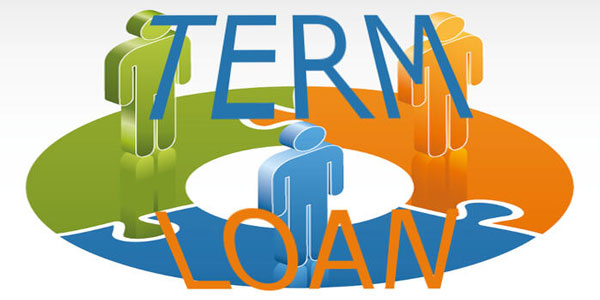In the unpredictable journey of life, securing the future of your loved ones is a responsibility that cannot be overlooked. One of the most effective ways to provide financial stability and protection is through life insurance. This powerful tool not only offers a safety net for your family but also ensures that your legacy lives on, even in your absence.
What are the Basics of Life Insurance?
Life insurance is a financial contract between an individual (the policyholder) and an insurance company. The basic idea is to provide a lump sum payment, known as the death benefit, to the beneficiaries of the policy upon the death of the insured. Here are some key basics of life insurance:
Premiums: Policyholders pay regular premiums to the insurance company. These payments can be monthly, quarterly, or annually and are essential to keep the policy active.
Death Benefit: This is the amount of money the beneficiaries receive when the insured person passes away. It is a tax-free lump sum that can be used to cover various expenses, such as funeral costs, debts, and ongoing living expenses.
Policy Term: Life insurance comes in two main types: term and permanent. Term life insurance offers coverage for a set period, like 10, 20, or 30 years, with a death benefit paid out if the insured passes away during that term. In contrast, permanent life insurance ensures coverage for the entire lifespan of the insured.
What are the Types of Life Insurance?
The following are the types of life insurance.
Term Life Insurance: Provides coverage for a specified term and is generally more affordable. It is suitable for individuals who need coverage for a specific period, such as during the years when children are dependent or when paying off a mortgage.
Whole Life Insurance: Whole life insurance is a lifelong coverage that builds cash value, allowing policyholders to borrow against or withdraw from the accumulated funds.
Universal Life Insurance: Another form of permanent life insurance that offers flexibility in premium payments and death benefits. It also accumulates cash value, and policyholders can adjust the death benefit and premium amounts.
Beneficiaries: These are the individuals or entities designated to receive the death benefit. Beneficiaries can be spouses, children, other family members, or even charitable organizations.
Cash Value: In permanent life insurance policies, a portion of the premium is allocated to a cash value account, which grows over time. Policyholders may have the option to borrow against this cash value or use it to pay premiums.
How to Choose the Right Insurance Plan?

Choosing the right insurance plan requires careful consideration of your individual needs, financial situation, and long-term goals. Here are some steps to help you navigate the process:
Assess Your Needs:
Consider your current and future financial responsibilities. Do you have a mortgage, outstanding debts, or dependents who rely on your income?
Think about your lifestyle and the standard of living you want to maintain for your family. This includes education expenses, daily living costs, and any other financial commitments.
Determine the Coverage Amount:
Use tools or consult with a financial advisor to estimate the amount of coverage required. Consider factors like outstanding debts, future expenses, and income replacement needs.
Understand Types of Insurance:
Provides coverage for a specific term and is often more affordable. Suitable for those with temporary needs or a limited budget. Offers coverage for the entire life of the insured and accumulates cash value over time. Suitable for those looking for lifelong protection and potential cash value growth.
Evaluate Your Budget:
Determine how much you can comfortably afford to pay in premiums. Be realistic about your budget and choose a plan that aligns with your financial capacity.
Compare Policies:
Get quotes from multiple insurance providers to compare coverage options and premium rates. Examine the features of each policy, including exclusions, riders, and any additional benefits. Ensure the policy meets your specific needs.
Benefits of Choosing Life Insurance

Choosing life insurance comes with a multitude of benefits, offering financial security and peace of mind for both you and your loved ones. Here are some key advantages:
Financial Protection for Dependents:
Life insurance furnishes your beneficiaries with a lump sum payment, referred to as the death benefit, in the unfortunate event of your passing. This guarantees financial support for your dependents, helping replace lost income.
Covering Outstanding Debts:
Life insurance can be used to cover outstanding debts, such as a mortgage or loans. This prevents your loved ones from facing the burden of repaying these debts on their own.
Funding Education Expenses:
The death benefit can be earmarked to cover educational expenses for your children or other dependents, ensuring that their academic aspirations are not compromised.
Estate Planning and Inheritance:
Life insurance allows you to leave a financial legacy for your heirs. The death benefit can be structured to serve as an inheritance, providing your loved ones with a lasting financial foundation.
Tax Benefits:
In many cases, the death benefit from life insurance is paid out to beneficiaries tax-free. This can be a significant advantage in terms of financial planning.
Peace of Mind:
Knowing that you have life insurance coverage brings peace of mind. It alleviates concerns about the financial well-being of your family in the event of your unexpected passing.
Business Continuity:
In business, life insurance can be used to cover key individuals whose absence could have a significant impact on the company. It provides financial stability during transitions and ensures the continuity of business operations.
Supplemental Retirement Income (Permanent Life Insurance):
Some permanent life insurance policies allow for the withdrawal of cash value during retirement, supplementing your income in later years.
Conclusion
Life insurance is not just a financial product; it's a commitment to the well-being and security of your family. It empowers you to take control of your legacy, ensuring that your loved ones are cared for long after you're gone. As you navigate the complexities of life, consider life insurance as a secure and responsible way to protect the future of those who matter most.







